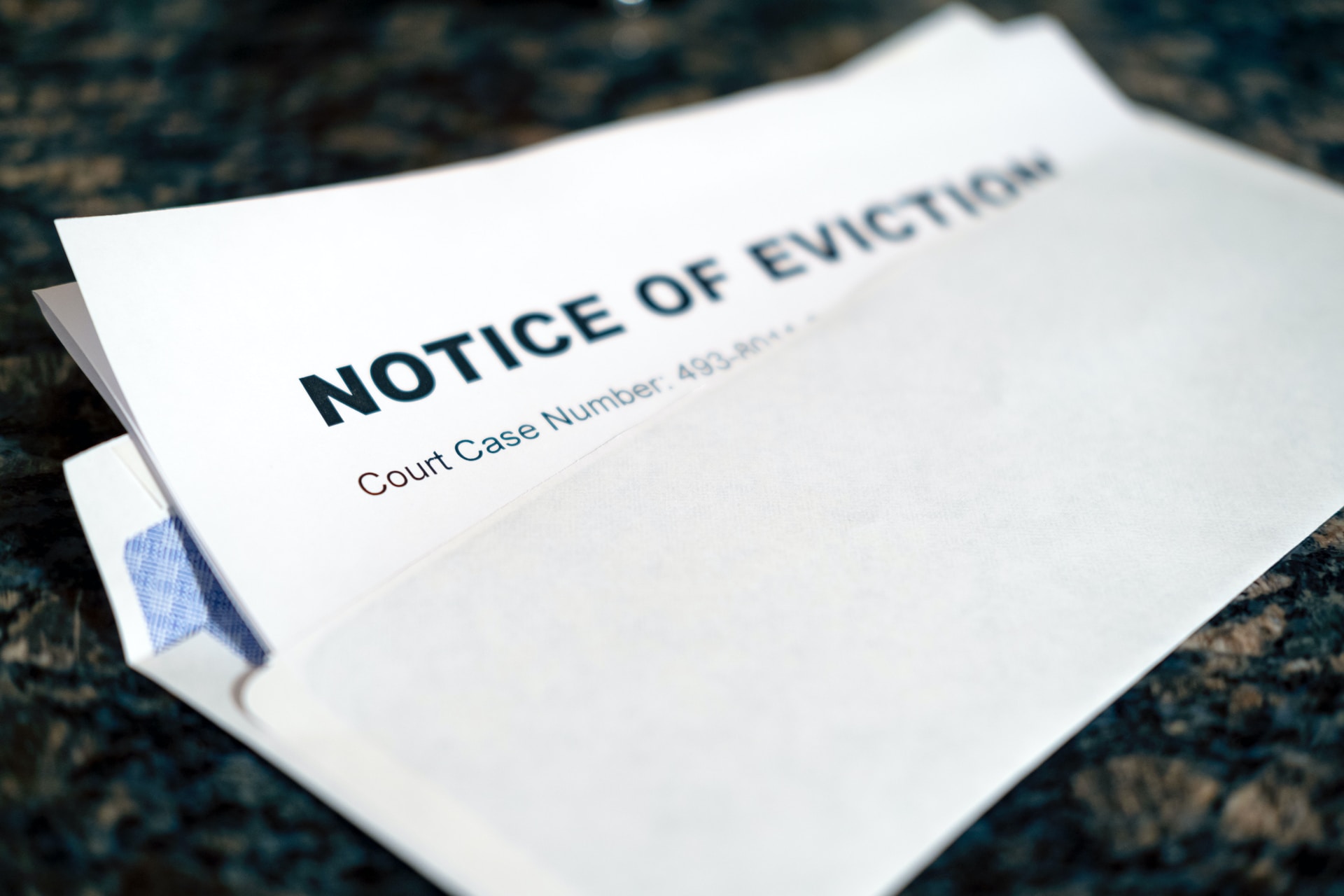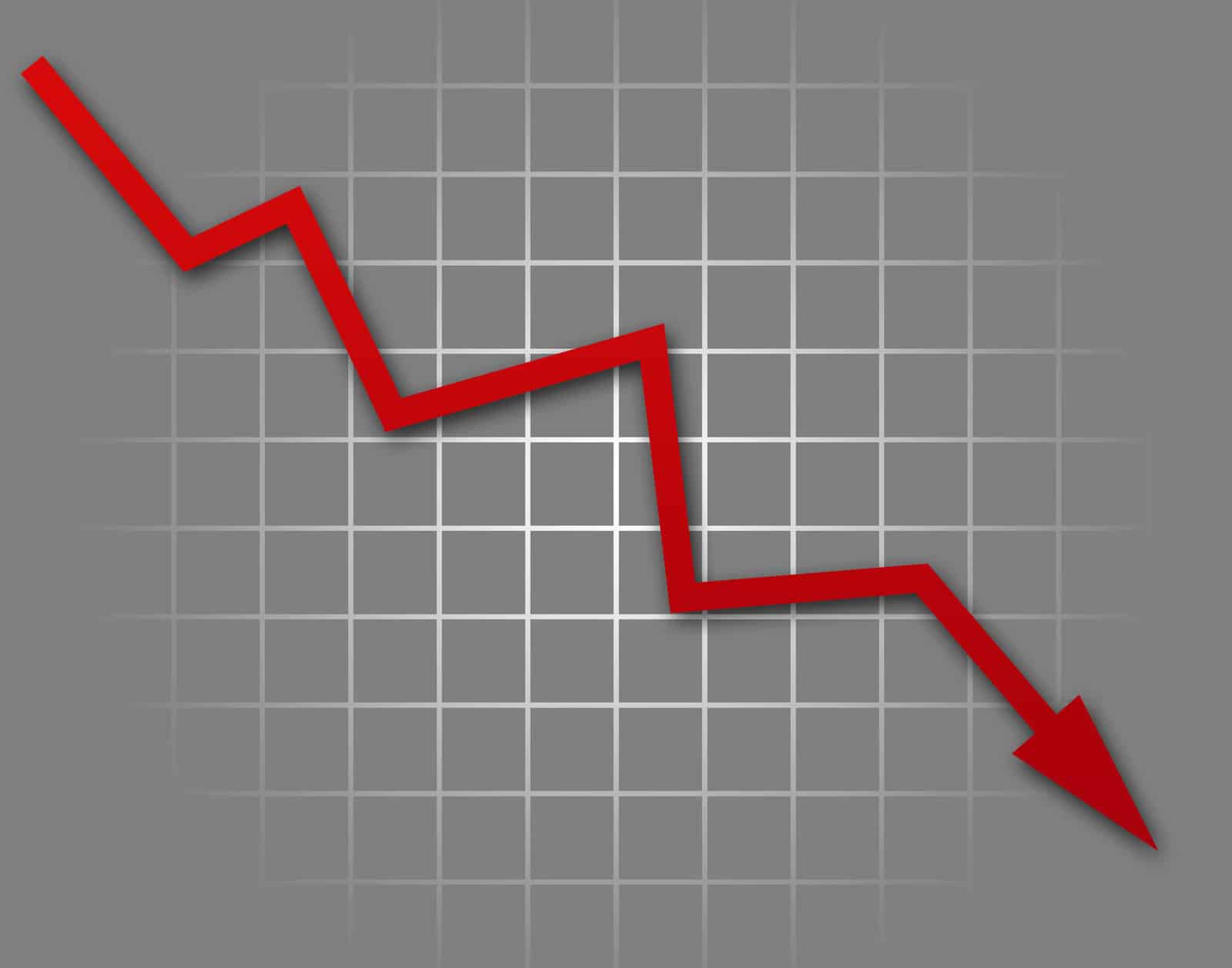

Finance
When Do Evictions Go On Your Credit
Modified: February 21, 2024
Learn how evictions can impact your credit score and when they are typically reported on your credit history. Get valuable insights on managing your finances amidst eviction challenges.
(Many of the links in this article redirect to a specific reviewed product. Your purchase of these products through affiliate links helps to generate commission for LiveWell, at no extra cost. Learn more)
Table of Contents
Introduction
Welcome to the world of personal finance, where credit scores and credit reports hold significant influence over your financial well-being. One crucial aspect that can greatly impact your credit score is the presence of evictions on your credit report. Evictions, which occur when a tenant is legally removed from a rental property, can have long-lasting repercussions on your creditworthiness and ability to secure future housing or loans.
In this article, we will delve into the intricacies of how evictions are reflected in credit reports, when they are reported to credit bureaus, and the implications they have on your credit score. We will also explore how long evictions stay on your credit report, as well as steps you can take to remove them and mitigate the negative consequences on your financial history.
Whether you have personally experienced an eviction or simply want to understand the potential impact on your credit, this article will provide you with the knowledge necessary to navigate this aspect of personal finance.
Understanding Credit Scores
Before diving into how evictions affect your credit, it’s important to have a basic understanding of credit scores. A credit score is a numerical representation of an individual’s creditworthiness and is used by lenders and financial institutions to assess the likelihood of repayment when extending credit. The most commonly used credit scoring model is the FICO® score, which ranges from 300 to 850.
Several factors contribute to your credit score, including payment history, credit utilization, length of credit history, types of credit, and new credit applications. Each of these factors carries a specific weight in determining your overall creditworthiness. Your credit score can greatly influence the interest rates you receive on loans, the credit limits you are granted, and even your ability to rent an apartment or secure certain jobs.
Now that we have a foundation of credit scores, let’s explore how credit reports capture evictions.
How Credit Reports Capture Evictions
Credit reports are comprehensive records of an individual’s credit history and financial behavior. They are compiled by credit bureaus, which gather information from various sources, including creditors, lenders, and public records. One such public record that can be included in a credit report is an eviction.
When a tenant is evicted from a rental property, it is typically a legal process that involves court proceedings. These court records, including eviction judgments or orders, are considered public records and can be accessed by credit bureaus. The credit bureaus then include this eviction information in the individual’s credit report.
It is important to note that not all evictions are automatically reported to credit bureaus. In some cases, the landlord or property management company may choose not to report the eviction. However, if the landlord or property manager decides to report the eviction, it will be added to the individual’s credit report and can have a significant impact on their creditworthiness.
In the next section, we will discuss when evictions are typically reported to credit bureaus.
When Evictions Are Reported to Credit Bureaus
The timing of when evictions are reported to credit bureaus can vary. Generally, evictions are not immediately reported to the credit bureaus as soon as the process is initiated. Instead, the reporting typically occurs after a series of steps have been taken.
Firstly, the landlord or property management company will file an eviction lawsuit against the tenant in court. If the court rules in favor of the landlord and issues an eviction judgment, this is when the eviction becomes a matter of public record. At this point, the eviction can potentially be reported to the credit bureaus.
However, it’s important to note that before an eviction is reported to the credit bureaus, the landlord or property management company must take additional steps. This may include making attempts to collect the outstanding rent or damages owed, and sending formal notices to the tenant regarding the debt.
If the tenant fails to resolve the debt or reach an agreement with the landlord, the eviction may then be reported to the credit bureaus. Once reported, it will be reflected on the tenant’s credit report and can have a negative impact on their credit score.
Keep in mind that the specific timing of when an eviction is reported can also vary based on the policies of the individual credit bureaus. Some bureaus may update credit reports monthly, while others may do so more frequently or less frequently.
Now that we understand when evictions are reported to credit bureaus, let’s explore the potential impact they can have on credit scores.
Impact of Evictions on Credit Scores
When an eviction is reported on your credit report, it can have a significant negative impact on your credit score. Credit scores are designed to assess an individual’s creditworthiness, and a history of evictions raises concerns for lenders and creditors.
Evictions are typically considered a derogatory mark on your credit report, similar to late payments or defaults on loans. As a result, your credit score may decrease, making it more difficult to obtain new credit or secure favorable terms on loans. Lenders may view individuals with evictions on their credit reports as higher credit risks, and may be less willing to extend credit or may charge higher interest rates to compensate for the perceived risk.
In addition to the direct impact on credit scores, the presence of evictions on your credit report can also negatively affect other aspects of your financial life. For example, when applying for rental housing, landlords often review credit reports as part of the tenant screening process. An eviction on your credit report may make it more challenging to secure a new rental lease as landlords may view it as a sign of financial instability or irresponsibility.
Moreover, an eviction can also impact future employment opportunities. Some employers conduct credit checks as part of the hiring process, particularly for positions that involve financial responsibilities. While an eviction alone may not disqualify you from a job, it may raise concerns about your financial stability and ability to handle responsibilities, potentially impacting your chances of securing certain employment opportunities.
It’s important to note that the specific impact of an eviction on your credit score may vary depending on other factors in your credit history. For example, if you have a long and positive credit history with a low credit utilization ratio, the impact of an eviction may be somewhat mitigated. However, for individuals with limited credit history or already struggling with bad credit, the impact of an eviction can be more severe.
Next, let’s explore how long evictions typically stay on your credit report.
How Long Do Evictions Stay on Your Credit Report?
The length of time that an eviction stays on your credit report can vary depending on several factors. In general, evictions can appear on your credit report for up to seven years. This is in accordance with the Fair Credit Reporting Act (FCRA), which regulates how long negative information can remain on credit reports.
It’s important to note that while an eviction may remain on your credit report for up to seven years, the impact of the eviction on your credit score may lessen over time. As the eviction gets older, its negative influence on your credit score may diminish, especially if you establish a positive payment history and maintain responsible financial habits.
However, it’s crucial to understand that even as the impact of the eviction fades over time, it may still be visible to lenders and landlords who review your credit history. Some rental applications may require disclosure of any previous evictions, and lenders may consider your eviction history when evaluating loan applications.
It’s worth noting that the timeframe for how long an eviction stays on your credit report can vary depending on certain circumstances. For example, the laws may differ from one state to another, and some states may have shorter or longer reporting periods for evictions. Additionally, if you successfully dispute the eviction with the credit bureaus and provide evidence that it was reported in error, it may be removed from your credit report before the seven-year mark.
To better understand how long a specific eviction or any negative information will remain on your credit report, it is advisable to review your credit reports from the three major credit bureaus – Equifax, Experian, and TransUnion. These reports can provide specific details about the status and duration of any reported evictions.
Now let’s explore some steps you can take to remove evictions from your credit report.
Steps to Remove Evictions from Your Credit
If you have an eviction on your credit report, there are steps you can take to potentially remove it or lessen its impact. Here are some strategies you can consider:
- Contact the credit bureaus: Start by requesting a copy of your credit report from each of the three major credit bureaus (Equifax, Experian, and TransUnion). Review the reports carefully and ensure that the information is accurate and up-to-date. If you find any errors or inconsistencies regarding the eviction, you can file a dispute with the respective credit bureaus to have it investigated and potentially removed.
- Work with the reporting party: Reach out to the landlord or property management company that reported the eviction. If there were any misunderstandings or errors in the eviction process, try to resolve the issue directly with them. They may be willing to remove the eviction from your credit report if you can come to a mutually agreeable resolution.
- Pursue legal assistance: If you believe the eviction was unjust or illegal, you may consider seeking legal assistance. Consult with an attorney who specializes in tenant law to assess your case and determine if you have grounds to challenge the eviction. They can guide you through the legal process and help you take the necessary steps to potentially remove the eviction from your credit report.
- Focus on rebuilding credit: While working to remove the eviction from your credit report, focus on improving other areas of your credit history. Make timely payments on all your debts, keep your credit utilization low, and maintain a healthy mix of credit. Over time, positive financial habits can help outweigh the negative impact of the eviction on your credit score.
- Seek professional credit repair assistance: If you are unsure about the process or are having difficulty navigating the credit repair process on your own, you may consider hiring a reputable credit repair company. These organizations specialize in helping individuals improve their credit scores and can guide you through the steps necessary to address the eviction on your credit report.
Note that removing an eviction from your credit report is not always guaranteed, and it may require time, effort, and potentially professional assistance. It’s important to be proactive and persistent in your approach to rectifying the situation.
Now, let’s summarize what we have discussed so far.
Conclusion
Evictions can have a significant impact on your creditworthiness and financial future. Understanding how evictions are reflected in credit reports, when they are reported to credit bureaus, and the implications they have on your credit score is essential for managing your personal finances.
An eviction on your credit report can lower your credit score and make it challenging to obtain new credit, secure housing, or even certain job opportunities. Therefore, it is crucial to address and mitigate the negative effects of an eviction on your credit.
While evictions can stay on your credit report for up to seven years, their impact on your credit score may diminish over time. By consistently practicing responsible financial habits, such as making timely payments and maintaining a positive credit history, you can gradually improve your creditworthiness, even with an eviction on your record.
If you have an eviction on your credit report, there are steps you can take to potentially remove it or reduce its impact. This includes disputing any inaccuracies with the credit bureaus, working with the reporting party, seeking legal assistance if necessary, and focusing on rebuilding your credit history. Additionally, professional credit repair assistance can provide guidance and expertise throughout the process.
Remember, managing your credit is an ongoing process. By staying proactive and maintaining good financial habits, you can improve your creditworthiness and mitigate the negative effects of past evictions on your credit report.
Now that you have a better understanding of how evictions can affect your credit, take the necessary steps to monitor your credit, address any issues promptly, and work towards building a strong and positive credit history.














